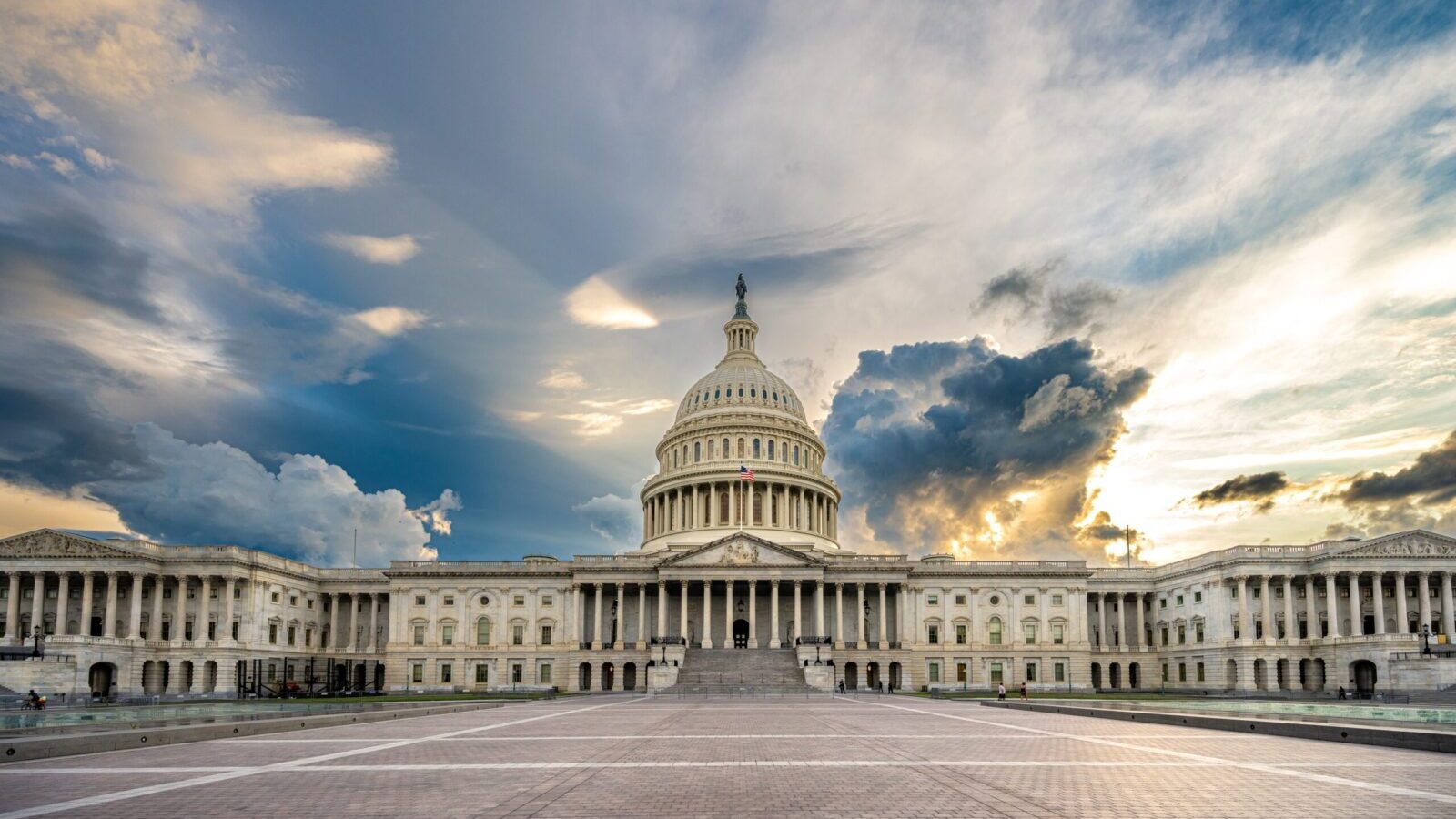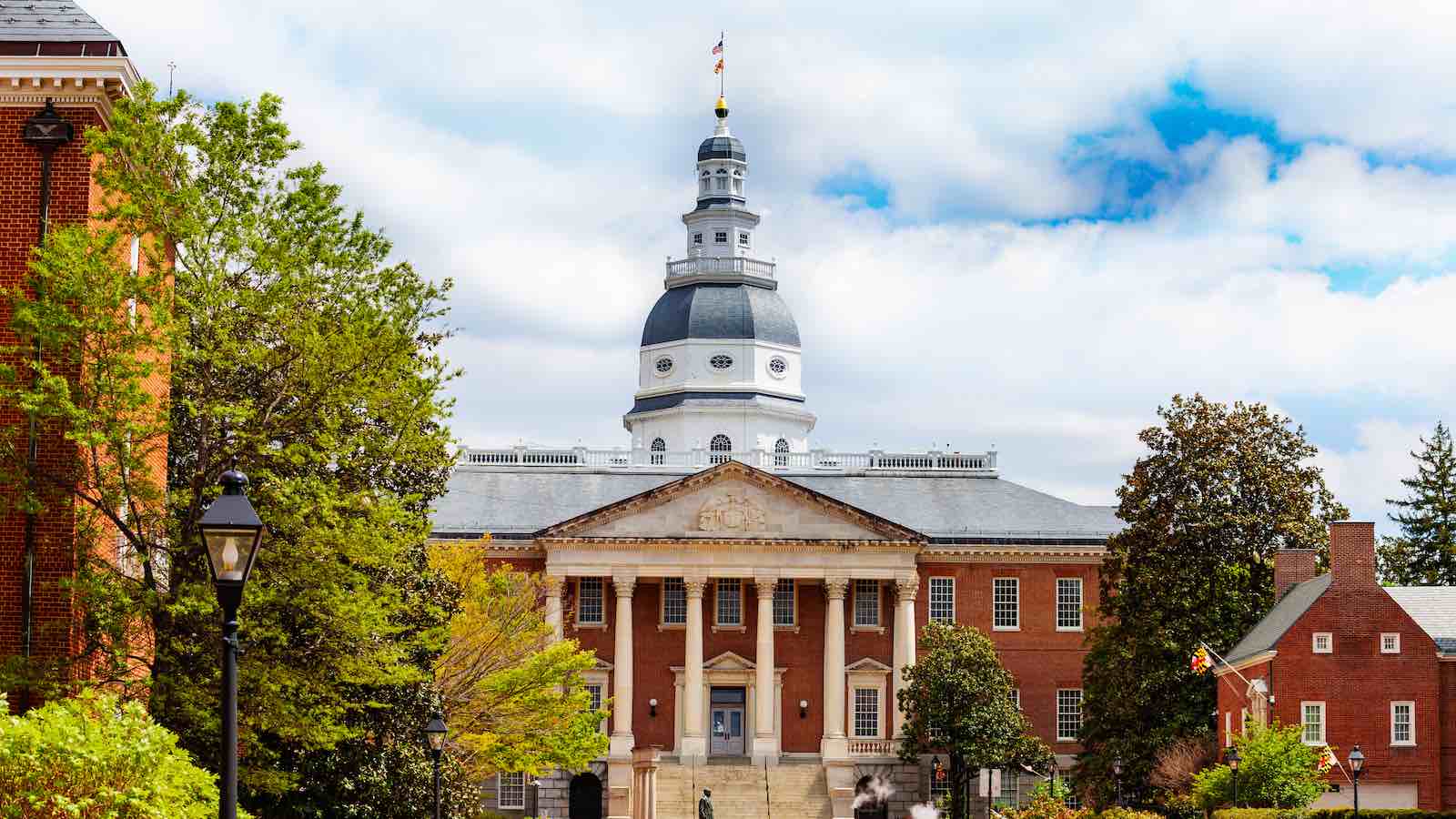Legislative Round-Up: GRIT 2, Addabbo Wants Awards Betting In New York
Statehouses across the nation continue to debate bills involving online casino and sports betting
4 min

Statehouses continue to be busy with discussions and debates surrounding online casino, mobile sports betting, and sweepstakes bills. Every so often, the federal government gets involved too. Casino Reports continues to follow all the action, as 2025 has the potential to be a big year in the gaming industry.
GRIT 2: Sports Betting Boogaloo
Connecticut Sen. Richard Blumenthal and Oregon Rep. Andrea Salinas re-filed the Gambling Addiction Recovery, Investment, and Treatment (GRIT) Act last Friday, again seeking to use funds from the federal sports betting excise tax (0.25% on handle) to address problem gambling.
Blumenthal and Salinas were the Senate and House sponsors of the bill in the previous 118th U.S. Congress. In a joint press release, the lawmakers stressed that the GRIT Act does not “raise taxes or create more bureaucracy,” since it draws funds from the federal excise tax and would operate within existing Health and Human Services programs. The bill is endorsed by the National Council on Problem Gaming (NCPG).
“The growing legalization of sports betting coupled with the ability to place bets from your phone whenever you want have created the perfect storm for gambling addiction — resulting in a severe public health crisis,” Sen. Blumenthal said in the release.
“The GRIT Act will allocate dedicated federal funding to tackle problem gambling head-on, allowing individuals suffering from gambling addiction to access support, resources, and treatment. With this legislation, we work to stop addiction and save lives.”
Opposition to The GRIT Act is expected to come from Nevada Rep. Dina Titus, whose constituency includes parts of Las Vegas. She spoke in opposition to the bill last year, calling the excise tax “outdated and misappropriated” since it was originally used to combat illegal betting.
Addabbo’s amendments march on
New York state Sen. Joseph Addabbo continues to try to make tweaks around the edges of the largest sports betting market in the country. He scored a small victory Tuesday after the Racing, Gaming, and Wagering Committee unanimously passed his bill with an amendment to add wagering on season-long proposition bets and award winners.
That is one of two amendments in SB 2616. The other would authorize wagering on the coin toss for all sporting events. That bet takes on relevance for the Super Bowl: Sportsbooks often put a lower vig on the coin toss since it is one of the few true 50-50 bets in all of sports wagering.
The bill is now with the Senate Finance Committee. It must still be passed in the House and signed by New York Gov. Kathy Hochul to take effect.
Cedar Rapids breaks ground on casino
The decision by the Iowa state Senate not to pursue the renewal of a moratorium on new casinos last week had a two-pronged effect. It led to the groundbreaking for a casino in Cedar Rapids and likely scuttled hopes of bringing iGaming to the Hawkeye State in the short-to-medium term.
Sen. Ken Rozenboom, the chairman of the Senate State Government Committee, declined to take up the measure after it passed the House by a 68-31 vote. Rozenboom, an opponent of gambling expansion in the state, noted in his weekly newsletter there was not “enough support in the Senate to legislatively dictate the Iowa Gaming and Racing Commission deny the Cedar River Crossing project in Cedar Rapids, rather than let them make that decision as they are tasked to do.”
The Iowa Racing and Gaming Commission voted 4-1 last week to issue a casino license to Linn County, where Peninsula Pacific Entertainment plans to build the $275 million Cedar Crossing Casino and Entertainment Center. The IRGC also voted unanimously not to pause its decisions to deny consideration of a petition from Riverside Casino on Monday in relation to issuing the license to Linn County.
Cedar Rapids has pushed for a casino in the second-largest city in the state for decades, only now getting past multiple years-long moratoriums. Revenue cannibalization from other brick-and-mortar venues was cited as the primary reason for opposition.
Oklahoma sports betting bills inch forward
A pair of sports betting bills unanimously advanced from Oklahoma’s Appropriations and Budget Select Subcommittee in the House on Monday, and their next stops will be before the House Appropriations and Budget Committee.
Both HB 1047 and HB 1101 are co-sponsored by Rep. Ken Luttrell and Sen. Bill Coleman, though they differ in nature.
HB 1047 is a straightforward bill that would tether sportsbook operators to Native American tribes that modify their compacts to include Class III Gaming and tax revenue at 10%.
HB 1101, meanwhile, would create a voter referendum to legalize sports betting and “creates the gaming compact supplements that tribes should use if they want to accept the state’s offer for sports betting.” It also would be invalidated should HB 1047 pass through the legislature.
There is also a Senate bill (SB 0125) submitted by Sen. Dave Rader that has language similar to Luttrell’s bill, which requires a minimum of four tribes to agree to open the state’s compact to offer retail and mobile sports betting.
The Oklahoma Indian Gaming Association (OIGA) is taking a wait-and-see approach to the legislature. In a statement from Chairman Matthew A. Morgan prior the start of the legislative session, OIGA said “any proposed new or modified gaming offering must make sound economic sense for everyone involved.”
The OIGA has had a tense relationship with Gov. Kevin Stitt when it comes to sports wagering. The governor submitted his own plan to regulate sports betting last year without consulting either the tribes or Luttrell and Coleman.
Sweeps back in the barrel
A much-anticipated hearing will take place Friday in Connecticut regarding SB 1235, which would ban so-called sweepstakes casinos and make such activity a Class D felony.
There are other gaming subjects that will be examined, but the clause that states “provide that certain persons conducting sweepstakes or promotional drawings shall not allow or facilitate participation in certain real or simulated online casino gaming or sports wagering” is particularly notable. This appears to be lawmakers seeking an avenue to protect FanDuel‘s and DraftKings’ de facto duopoly for internet casino gaming in the state as well as their notable market shares for online sports betting.
Other happenings of note
It was a busy filing time in Springfield: Illinois lawmakers again look to legalize iGaming, and the city of Chicago may be a factor.
Twin Cities triple threat: The Minnesota Senate State and Local Government Committee will hear three sports betting bills Thursday: SF 978, SF 757, and SF 1124. Of the three, SF 1124 and SF 757 are the ones most likely to gain traction, though language involving the use of “tax” means it will likely be subject to negotiations among tribal gaming operators.
Mississippi closer to banning sweeps: The Mississippi Senate overwhelmingly passed a bill that would ban sweepstakes casinos in the Magnolia State via a substitute version of SB 2510. The bill would make each violation of the act a felony subject to a $100,000 fine and a 10-year prison sentence, as well as a forfeiture of assets.






